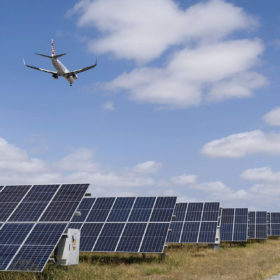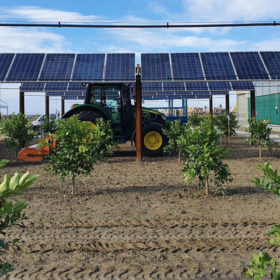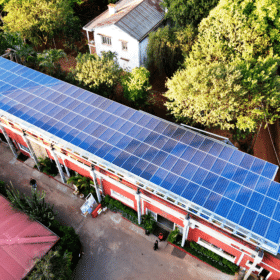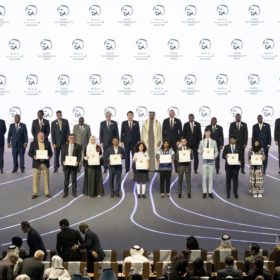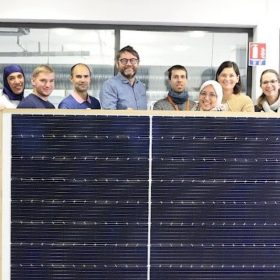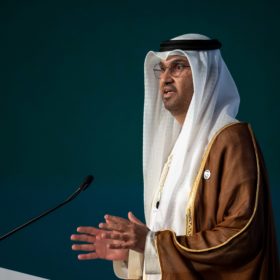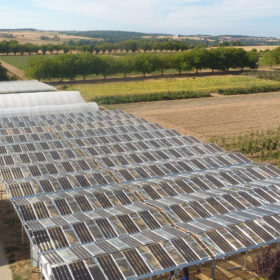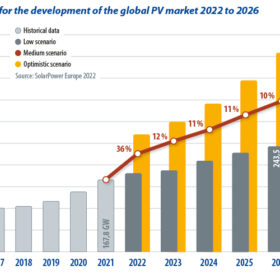Consumers have a right to know the energy make-up of goods
With energy certification already a must-have for any business which makes green energy claims, Ed Everson, chief executive of England-based, global certification company Evident, makes the case for firms to be required to make full disclosure of their energy sources.
Ready for takeoff
Airport PV can provide an instant boost to emission-reduction efforts while work continues on sustainable aviation fuels. Developing solar projects at or near airports, however, is not as straightforward as typical ground-mount installations.
Adapting agrivoltaics to different climates, crops
An international consortium led by Italy’s Eurac Research launched the Symbiosyst project to adapt PV modules, mounting structures, and maintenance technologies to the needs of various crops in agrivoltaic installations in different climates.
PV developer reveals results of soybean agrivoltaic pilot project
French solar developer TSE, in association with Alliance BFC, has unveiled the initial results of a pilot study in France on how solar panels can affect soybean growth.
Will Africa be left behind in the scramble for renewables?
Buoyant predictions about a rosy future for African photovoltaics, based on the continent’s abundant solar resources, continue to overlook the difficulties of securing investment, as Empower New Energy co-founder and CEO Terje Osmundsen explains, referring to a report published by the Africa Solar Industry Association at the World Future Energy Summit in Abu Dhabi today.
Solar proves common thread among Zayed Sustainability Prize winners
The opening ceremony of Abu Dhabi Sustainability Week 2023 was not short of inspirational rhetoric, but the winners of the Zayed Sustainability Prize provided some real-world examples of what action on the local level really looks like.
CEA-INES unveils 566 W HJT solar module with low carbon footprint
French research institute CEA-INES has produced a 566 W heterojunction (HJT) demonstrator PV panel using Norwegian silicon wafers based on German polysilicon and solar cells made in France. The prototype has a carbon footprint of 317 kgCO2eq/kW, which is considerably lower than the maximum 800 kgCO2eq/kW standard for Chinese products.
UAE energy summit serves as a trial run for COP28
The United Arab Emirates is treating Abu Dhabi Sustainability Week, which includes the World Future Energy Summit, as a trial run before the nation hosts the COP28 climate talks in November.
BayWa r.e. continue to deploy agrivoltaic facilities across Europe
German renewables developer BayWa r.e. has finished building four new pilot agrivoltaic projects in the Netherlands, Austria, and Germany. They combine solar with fruit cultivation.
From 300 GW to 3,000 GW per year – a utopia?
The photovoltaic industry is expected to achieve annual global expansion of 300 GW as early as this year. That sounds like a lot, but is it enough? In view of climate change and rising energy demand, it is time for a new vision.

